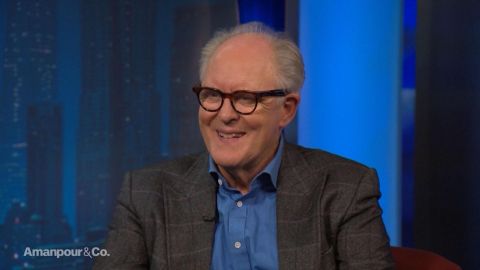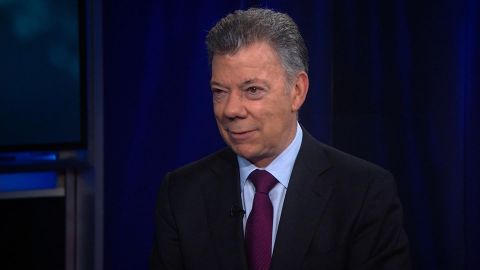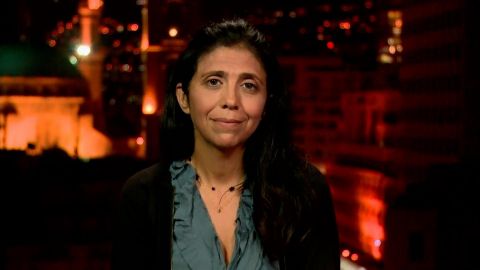Read Transcript EXPAND
CHRISTIANE AMANPOUR: First and foremost, what do you make of this? Why on your continent is this happening now?
JUAN MANUEL SANTOS, FORMER COLOMBIAN PRESIDENT: And Ecuador and Haiti and other else.
AMANPOUR: Bolivia. And look, we’ve got a map which shows all of these various different locations.
SANTOS: I think this is a combination of different factors. First of all, democracy, freedom is one factor, you know. People feel more empowered to protest. Second, inequality. That is — that America is the most unequal of all continents and people are really feeling that. Third factor is progress. For example, in Chile, this is not a protest of the lower classes, it’s the middle class that is going out. And what is happening all around Latin American is that we have been very successful in bringing a lot of people out of poverty, out of the — where the economy is called the poverty trap. When you get somebody out of the poverty trap, they — their expectations increase geometrically.
AMANPOUR: But let’s just dig down into that because —
SANTOS: But there’s two other factors, inequality and corruption.
AMANPOUR: OK.
SANTOS: Corruption is one of those worst today that everybody is mad about and people are also protesting it.
AMANPOUR: So, would you say that’s the heart of it? Because analysts are trying to figure out whether there is a common thread to all of these people power movements or people protest movements in the streets, from Latin America all the way to Hong Kong, in Asia, obviously. Do you think corruption is it?
SANTOS: I would say in certain areas, yes. But there is something that the economy has called the demonstration effect. When people see that in Hong Kong, people can go out the streets and be even violent, and a regime that is quite drastic like the Chinese allows that, then people feel, if you can do it in Hong Kong, we can do it here. So, there is a combination of different factors.
AMANPOUR: So, how do you feel then when it wasn’t the Chinese tanks who came into Hong Kong but it was President Pinera’s tanks in Chile that came into Chile and there are at least a couple of dozen people dead? Is that an overreaction?
SANTOS: I think there were some overreaction. Chile needs and many Latin American countries needs a more ample dialogue. People feel that they are not participating in the wealth that had been created and not participating in the basic and fundamental decisions. And we need to open up our democracies and — because elections are sufficient anymore. You need to make people feel that they are empowered in other as aspects.
About This Episode EXPAND
Former U.S. Secretary of Veterans Affairs David Shulkin joins Christiane Amanpour to discuss his experience inside the Trump administration. Mona Fawaz weighs in on Lebanese Prime Minister Saad Hariri’s resignation, and Juan Manuel Santos analyzes unrest in Latin America. Actor John Lithgow explains the origins of his satirical poetry collection “Dumpty: The Age of Trump in Verse.”
LEARN MORE



